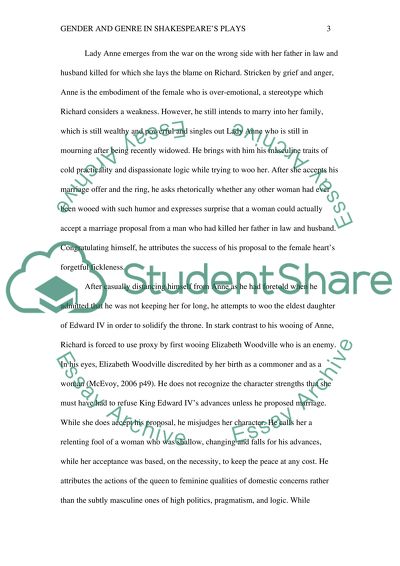Cite this document
(“Gender and Genre in Shakespeare's Plays Essay Example | Topics and Well Written Essays - 1000 words”, n.d.)
Retrieved from https://studentshare.org/literature/1452549-gender-and-genre-in-shakespeares-plays
Retrieved from https://studentshare.org/literature/1452549-gender-and-genre-in-shakespeares-plays
(Gender and Genre in Shakespeare'S Plays Essay Example | Topics and Well Written Essays - 1000 Words)
https://studentshare.org/literature/1452549-gender-and-genre-in-shakespeares-plays.
https://studentshare.org/literature/1452549-gender-and-genre-in-shakespeares-plays.
“Gender and Genre in Shakespeare'S Plays Essay Example | Topics and Well Written Essays - 1000 Words”, n.d. https://studentshare.org/literature/1452549-gender-and-genre-in-shakespeares-plays.


